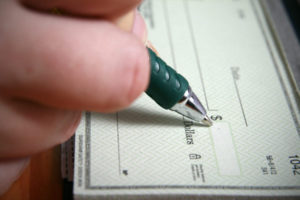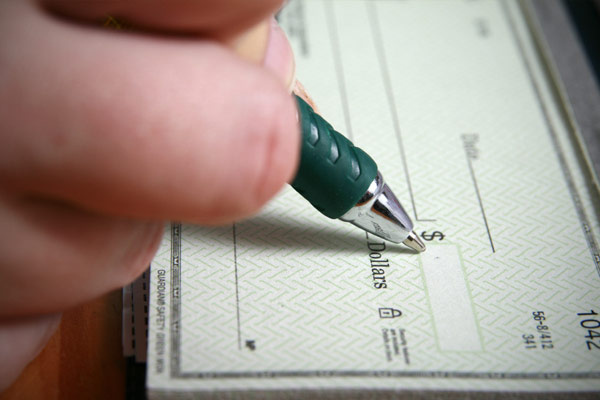6 Steps to Learn to Pay Bills After Divorce
A question from our Raleigh divorce workshop: “How do I learn how to keep the books and pay the bills? He has always done that.”
Divorce brings new independence, which can be a heady rush — or an overwhelming nightmare.
Whether you are male or female, after divorce you are no longer splitting responsibilities with someone else. From housecleaning and cooking to lawn care and financial management, suddenly it’s all on you. And it’s a lot of work!
Some of our divorce workshop attendees have never worked outside the home or lived on their own. Some have done those things, but not in decades. Either way, it’s understandable to be nervous about managing all these new tasks. After all, you only have two hands and so many hours in the day. Here are six steps to get started on one part of your new life — paying the bills.
- Bank account – Set up a bank account set up in your name if you don’t already have one. It’s important to do this as soon as possible not only to pay bills but to begin separating finances from your spouse. If you work outside the home, be sure your employer changes your direct deposit to the new account.
- List – Make a list of all the bills. If you are staying in the marital home, you’ll have to speak to your spouse about some of this. If you are moving, you can call each provider to set up new accounts for your new home.
Your bills probably include the following. These are just a few to get you started. You may have other bills not listed here, depending on your hobbies and lifestyle.
- Mortgage/rent

- Electricity
- Natural Gas (if applicable)
- Water/Sewer/Trash
- Cable and/or Internet
- Phone (Landline and/or mobile)
- Credit cards, including store or gas credit cards
- Student or other loan
- Subscriptions
- Insurance
- Memberships/dues
- Car payment
- Services (e.g. housekeeper, lawn care)
3. Decisions – Figure out which ones still apply. For example, if you are leaving a house and moving to an apartment, you will no longer need to worry about lawn care and may no longer need someone to clean your house. Many people going through divorce make some other changes at this time. Decide what’s best for you.
4. Accounts – Contact each provider to transfer ownership of that bill to your name, to create a new account, or to cancel that service. If you have paper copies of each bill on hand, you will find your account numbers and a contact phone number. Once you call, they will assist you from there. If you do not have paper bills, you can search online for the provider to obtain a phone number. You will very likely need to find out from your spouse some information along the way. For example, your mortgage might be paid to your bank, but it might also be to a mortgage lending company. Here is a short guide for the basic utilities in Wake County, North Carolina with links to their websites:
Electricity – Duke Energy Progress
Water/Sewer/Trash – City of Raleigh (or the city you live in)
Gas – PSNC Energy
Cable and/or Internet – Could be Time Warner Cable or AT&T
5. Organize – Organize bills by due date. Once everything is set up, you’ll start receiving bills each month. Some people find it less overwhelming if a paper bill arrives in the mail each month as a reminder. But it can be helpful to sign up for online reminders/paperless instead. As you set up the accounts, be sure to ask the monthly due date for each bill and write it down and/or mark it on your calendar. 
One important tip: divide the bills into two groups, those that are due the first half of the month, and those that are due the second half. Is the balance roughly even? Or are more bills due the first half of the month? If you receive a paycheck twice a month, you will have to calculate which bills to pay with each paycheck.
6. Pay – Pay the bills. You have three choices:
- pay them by mail with a check (if you receive a paper bill)
- paying them online through the provider’s website (manually or set up automatic payments)
- pay them automatically through your bank
What you choose depends on your comfort level with computers and online banking and your organization methods. For the second option, you’ll need to log in each month to that provider’s website and then click “pay my bill” or something similar. You can view your balances, see past statements, and more. Some providers offer a way to set up automatic payments, which is an excellent way to make sure bills are always paid on time.
The third option is also useful: your bank will send the provider a check each month. Again, you can log in and do this on the correct date each month or set it up to automatically occur. If you are curious about this but uncertain, it’s best to speak to someone at your bank or a friend about how to do this. However, you can try logging in and looking for something that says “pay bills” or “set up automatic payments.”
While this feels overwhelming now, paying the bills will soon feel easy. If you have more questions about this, join us on the second Saturday of any month for our monthly divorce workshop.







